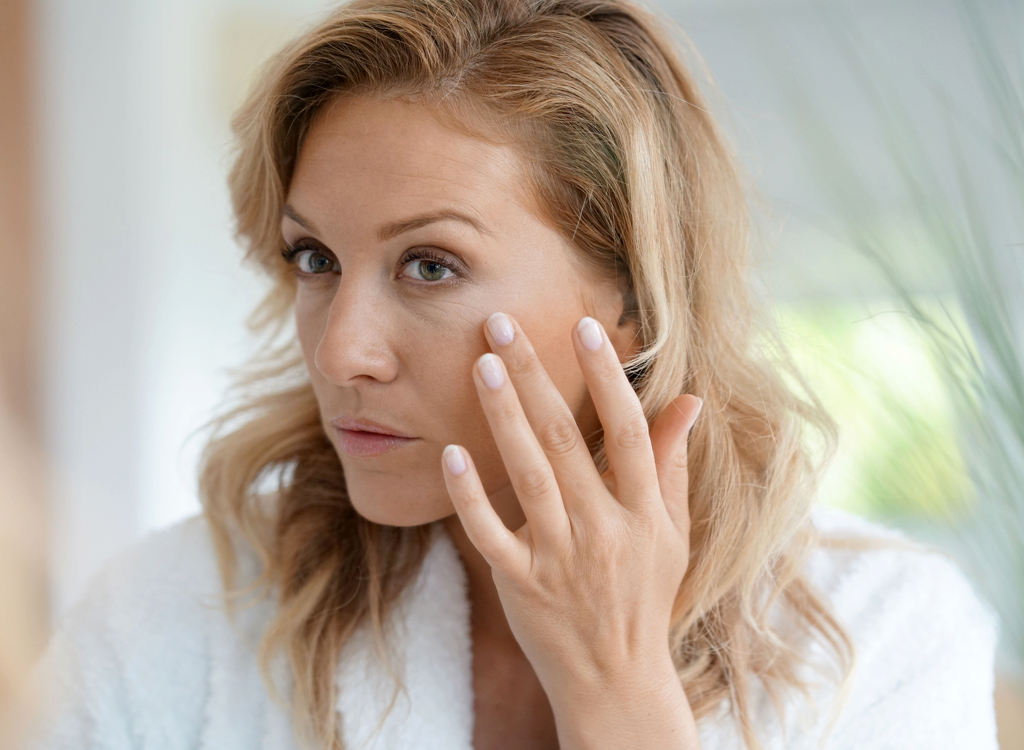The One Food That Will Help You Fight Wrinkles, Say Experts

Developing wrinkles is an unfortunate, but inevitable, side effect of aging. The good news is that there are some ways to slow or reduce their development, one of which is focusing on our diet.
Before we get into the best foods to eat (and those to avoid) to fight wrinkles, we first have to understand what happens to our skin as we age that causes wrinkle development.
“As we age, our youthful complexion starts to fade and our collagen and elastin levels decrease. Additionally, free radical damage from the sun, pollutants, smoking, and alcohol can all contribute to fine lines and wrinkles,” says Alexis Parcells, MD, board-certified plastic surgeon, owner of Parcells Plastic Surgery, and founder of SUNNIE Wrinkle Reducing Studio.
“Another key factor? Your diet. Yes, what you eat affects the overall look and tone of your skin, and that includes its youthfulness (or lack thereof),” she adds. (Related: 13 Foods That Make Your Skin Worse, According to Dermatologists)
The good news is that there are steps you can take to slow skin aging, Parcells says, including shielding your skin from the sun with SPF 30, leading a smoke-free life, and limiting your wine intake, but “being mindful of what you ingest will also help prevent lines and wrinkles (as well as treat the ones that already exist),” says Parcells.
“There are a variety of foods that can help boost our immune system and that contain ingredients vital to our skin health,” says Parcells.
Some of the best foods to promote skin health and reduce wrinkle production include a group of foods that help to promote collagen production, most notably foods rich in vitamin C.
“Foods that are high in antioxidants and vitamins C, including leafy greens and berries, increase collagen production and help the skin heal or renew itself,” says Parcells.
Collagen is one of the most abundant proteins in the human body—accounting for up to 40% of all types of protein in the body. It’s the major protein that makes up the connective tissue in your body.
Your body naturally makes its own collagen, but it requires the right building blocks to do so. Vitamin C is one of those building blocks that has been shown to enhance natural collagen production when taken as a supplement, as described in an Orthopaedic Journal of Sports Medicine study. As Parcells notes, foods high in vitamin C include leafy greens, red bell peppers, strawberries, kiwi, and oranges.
To reduce the appearance of wrinkles even more, you can take collagen supplements. This powdered supplement has been shown to help the body produce more collagen and reduce signs of wrinkles, according to a Skin Pharmacology and Physiology study.
Parcells says you can optimize your skin’s ability to fend off wrinkles by adding more than just vitamin C-rich foods to your diet.
“Foods high in healthy fats, such as avocados and fish, decrease our body’s immune response, protect against free radical damage, and attract water to skin cells to reduce wrinkles,” says Parcells.
When possible, try to get your vitamin C from food sources, which should provide sufficient enough levels of this vitamin to support collagen production. If you opt for a pill, be wary of how much of it your taking. Read more: Dangerous Side Effects of Taking Too Much Vitamin C.
For more healthy eating news, make sure to sign up for our newsletter!